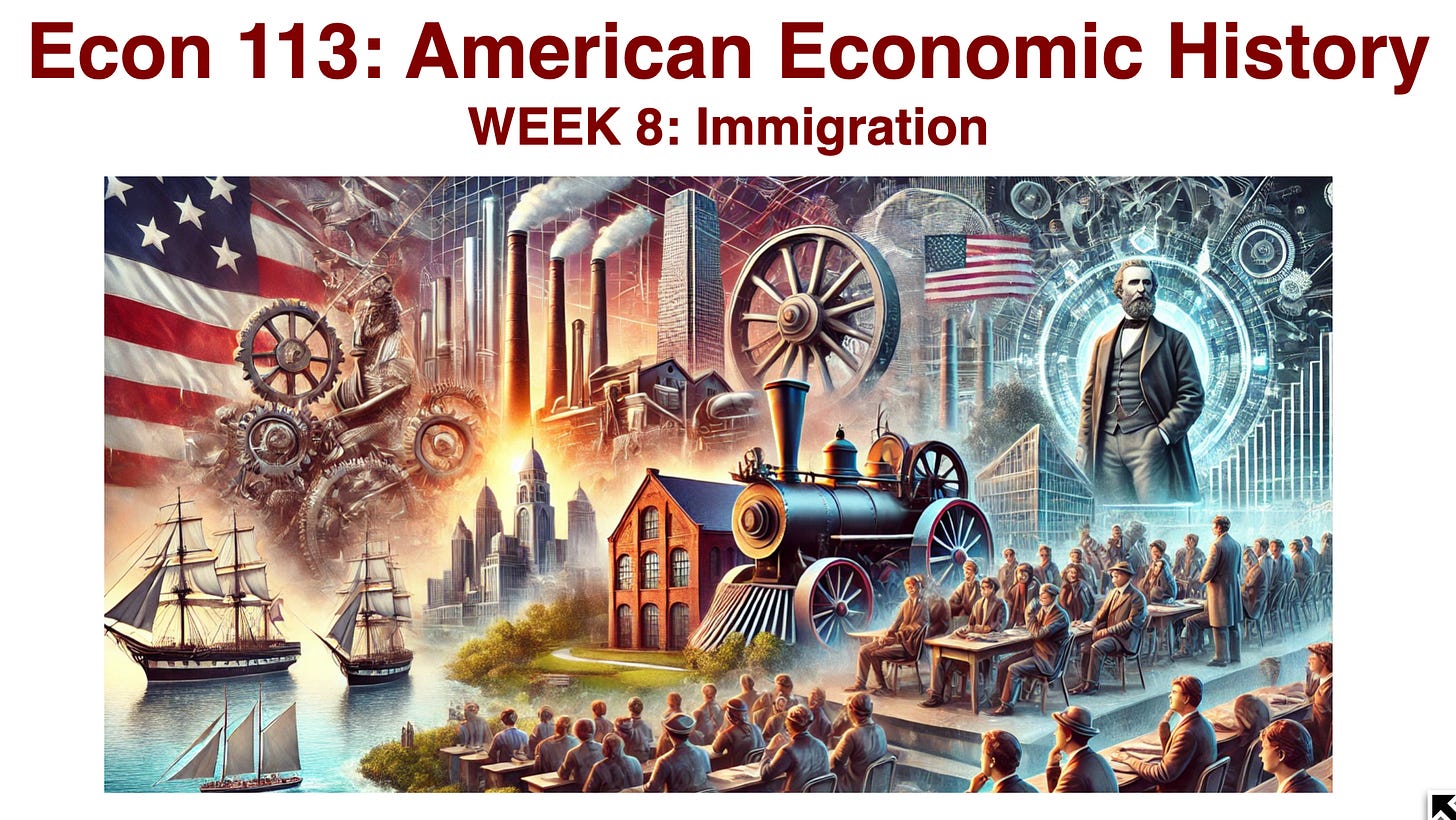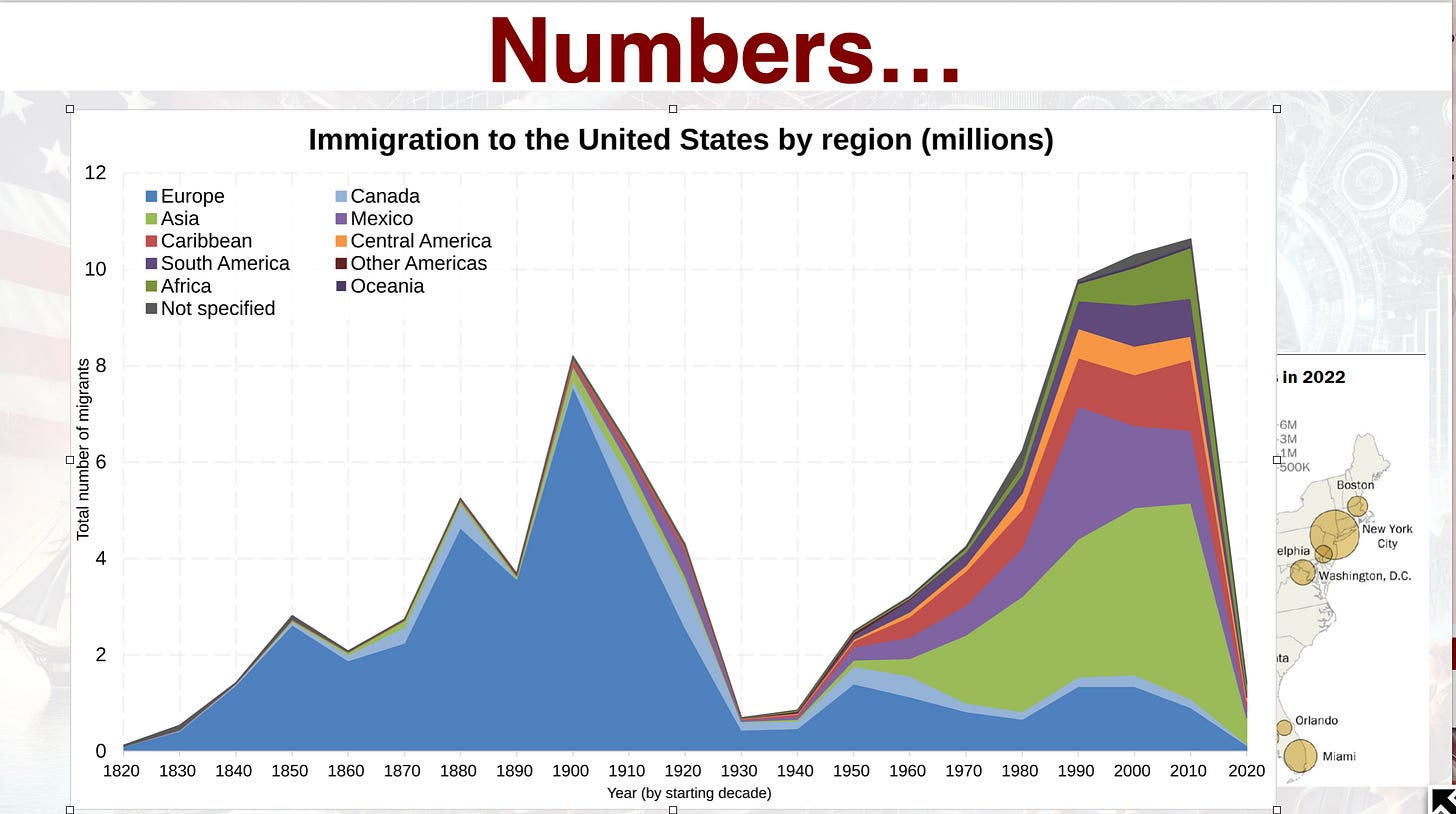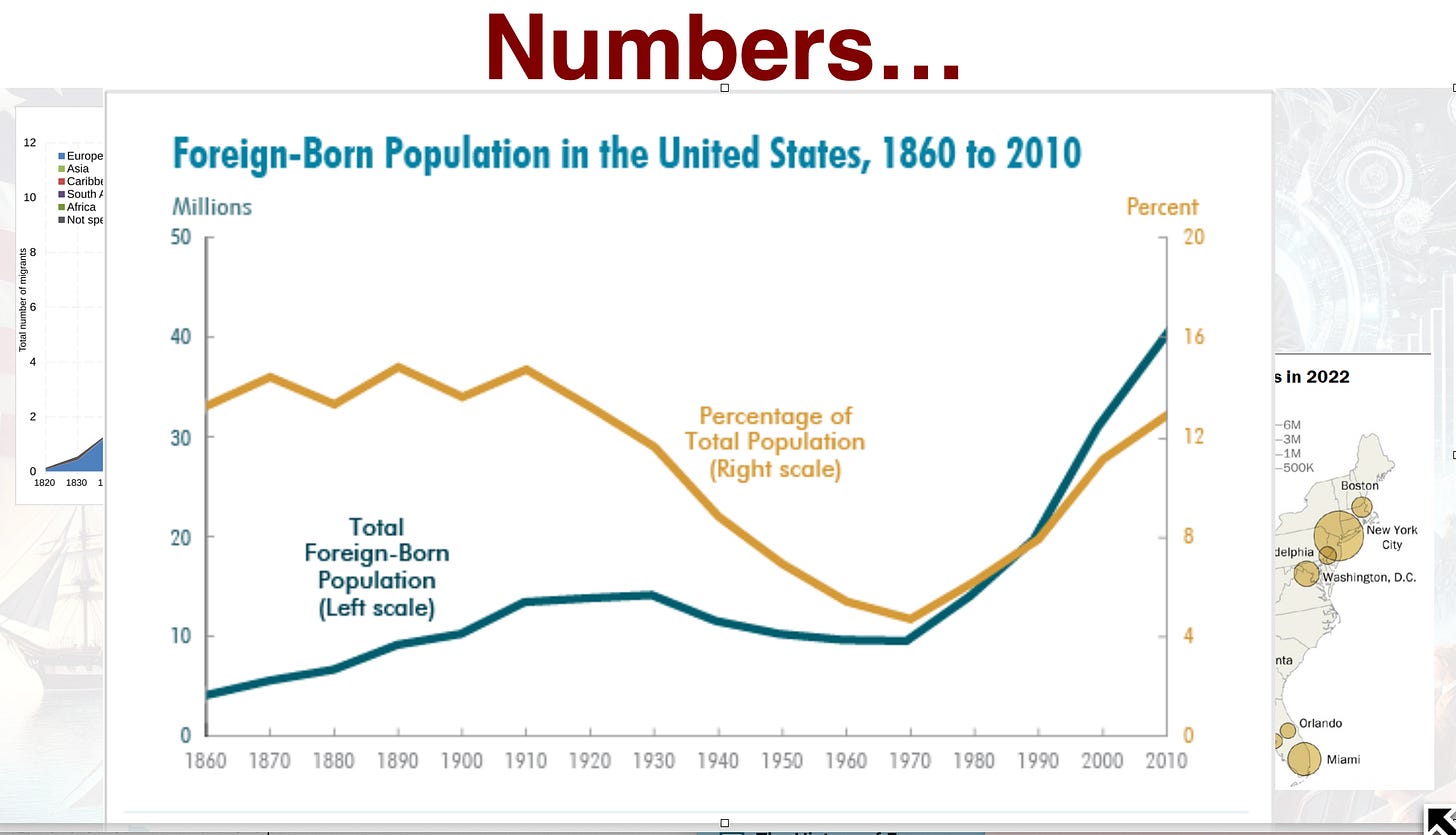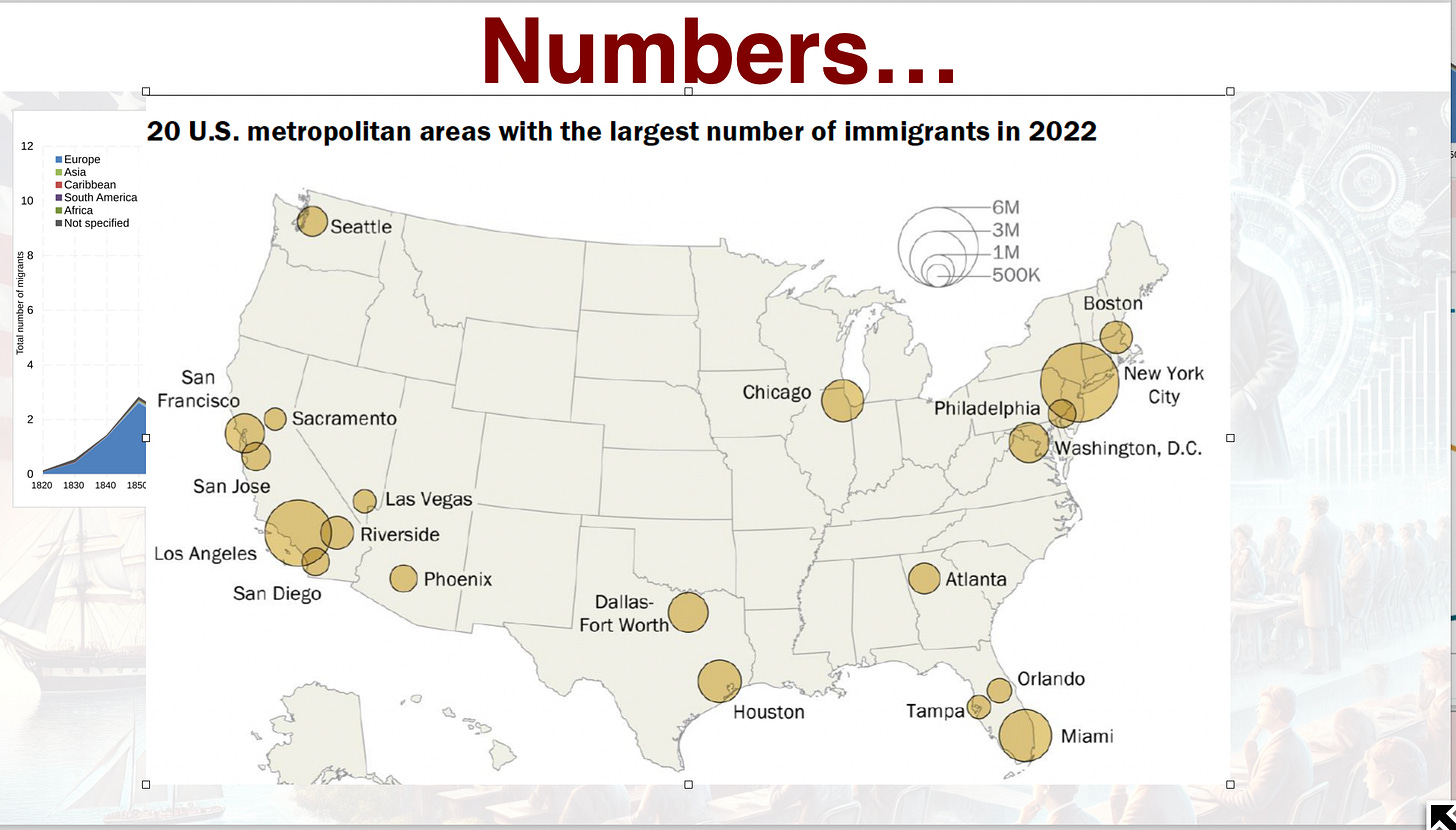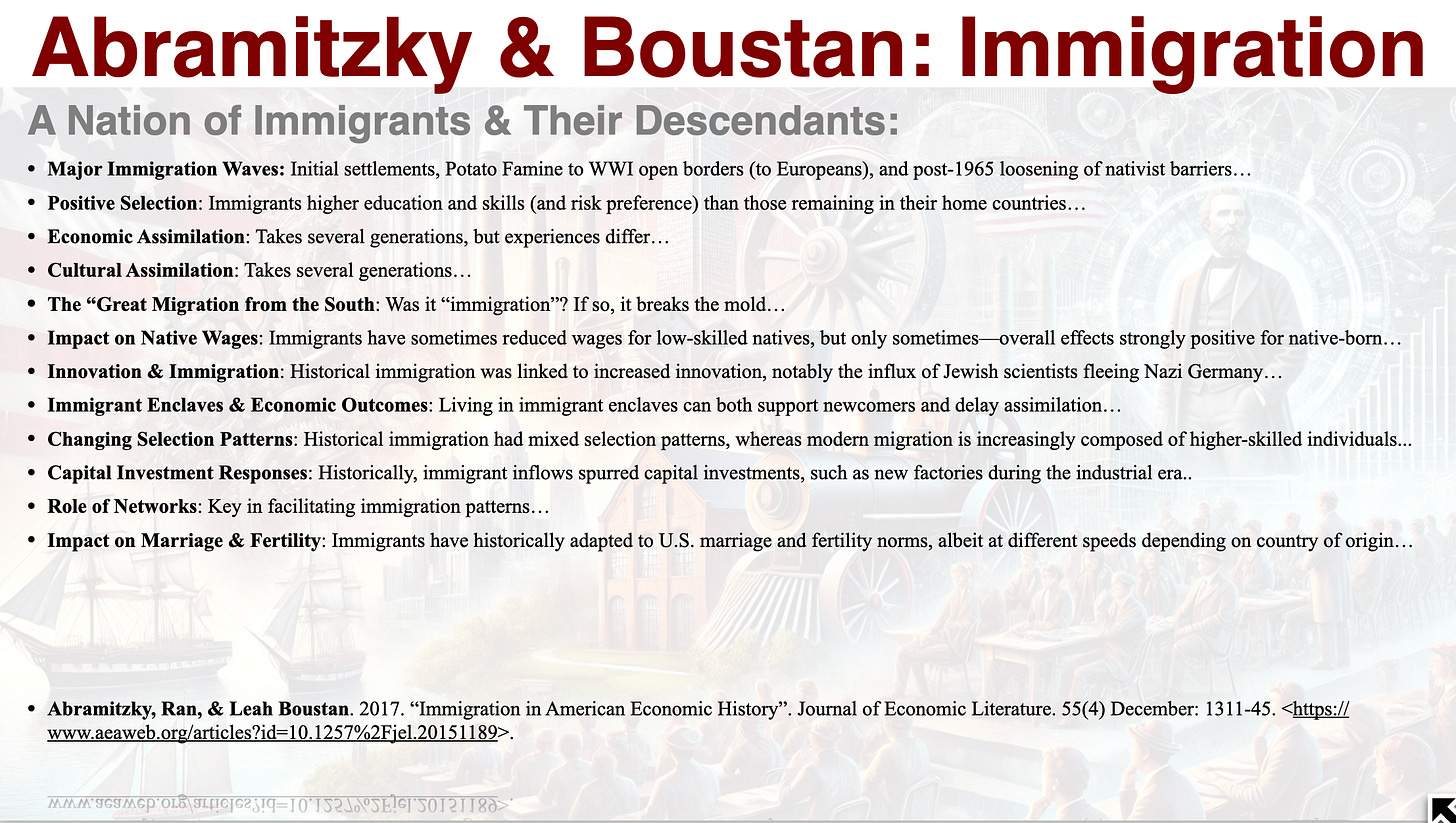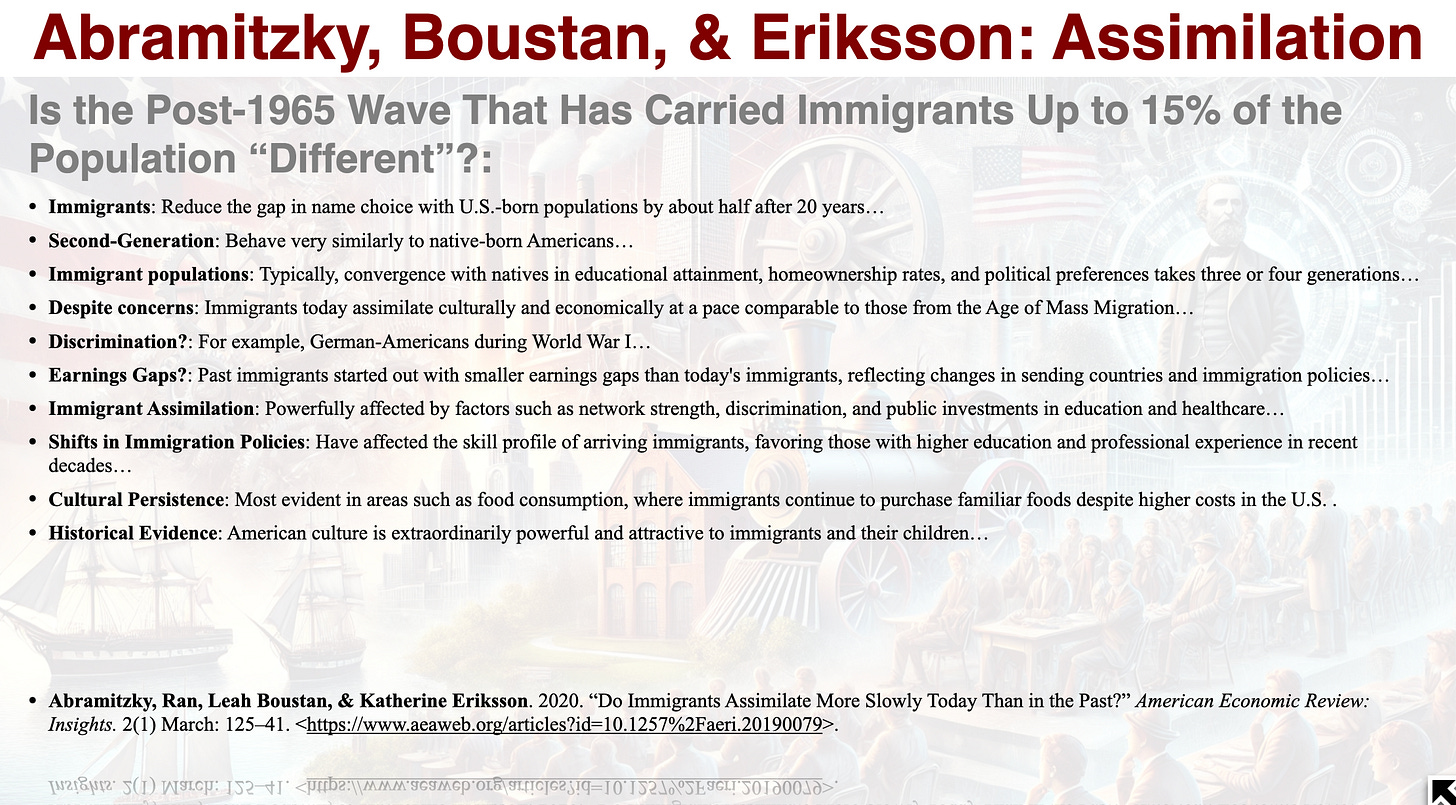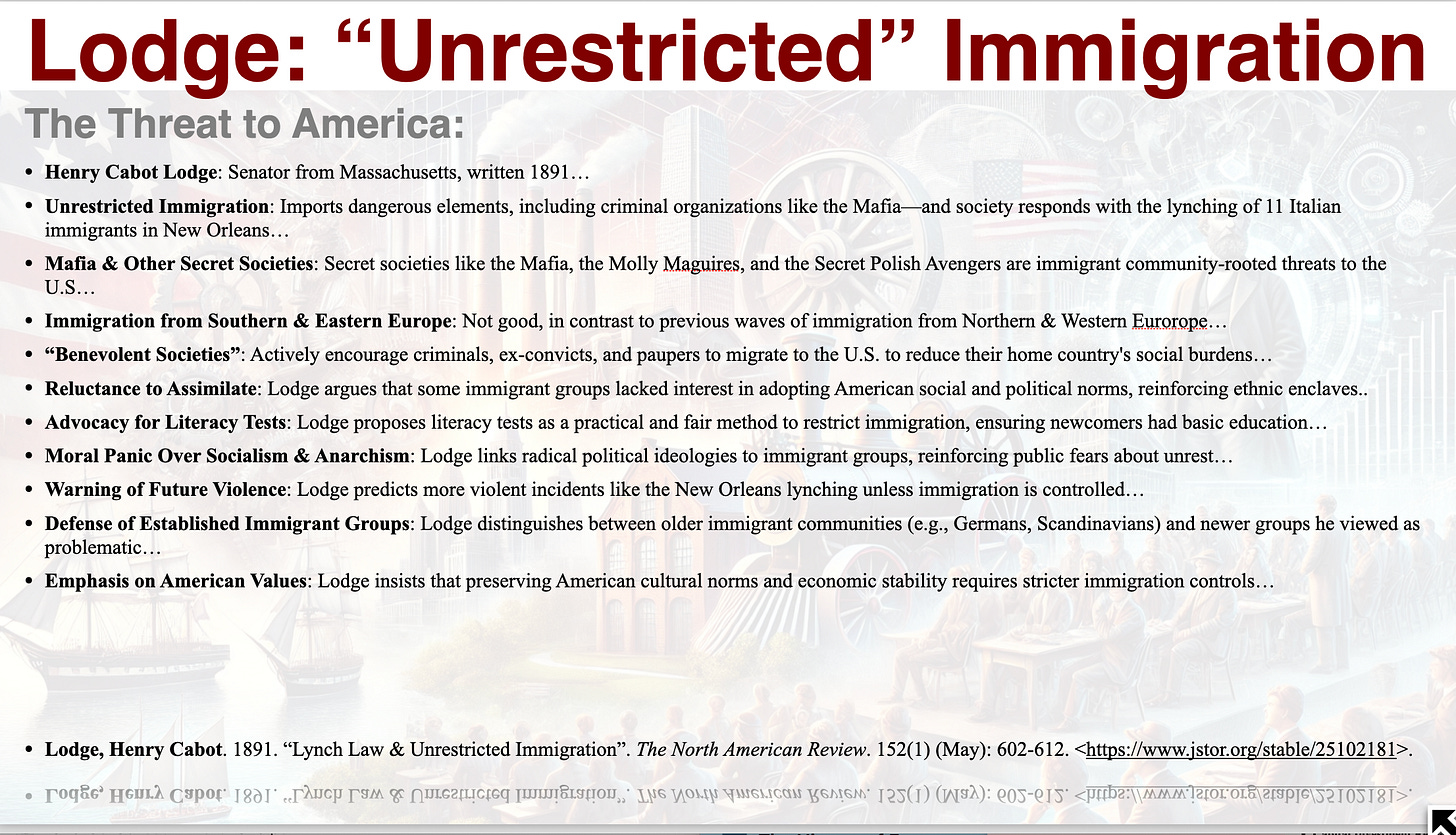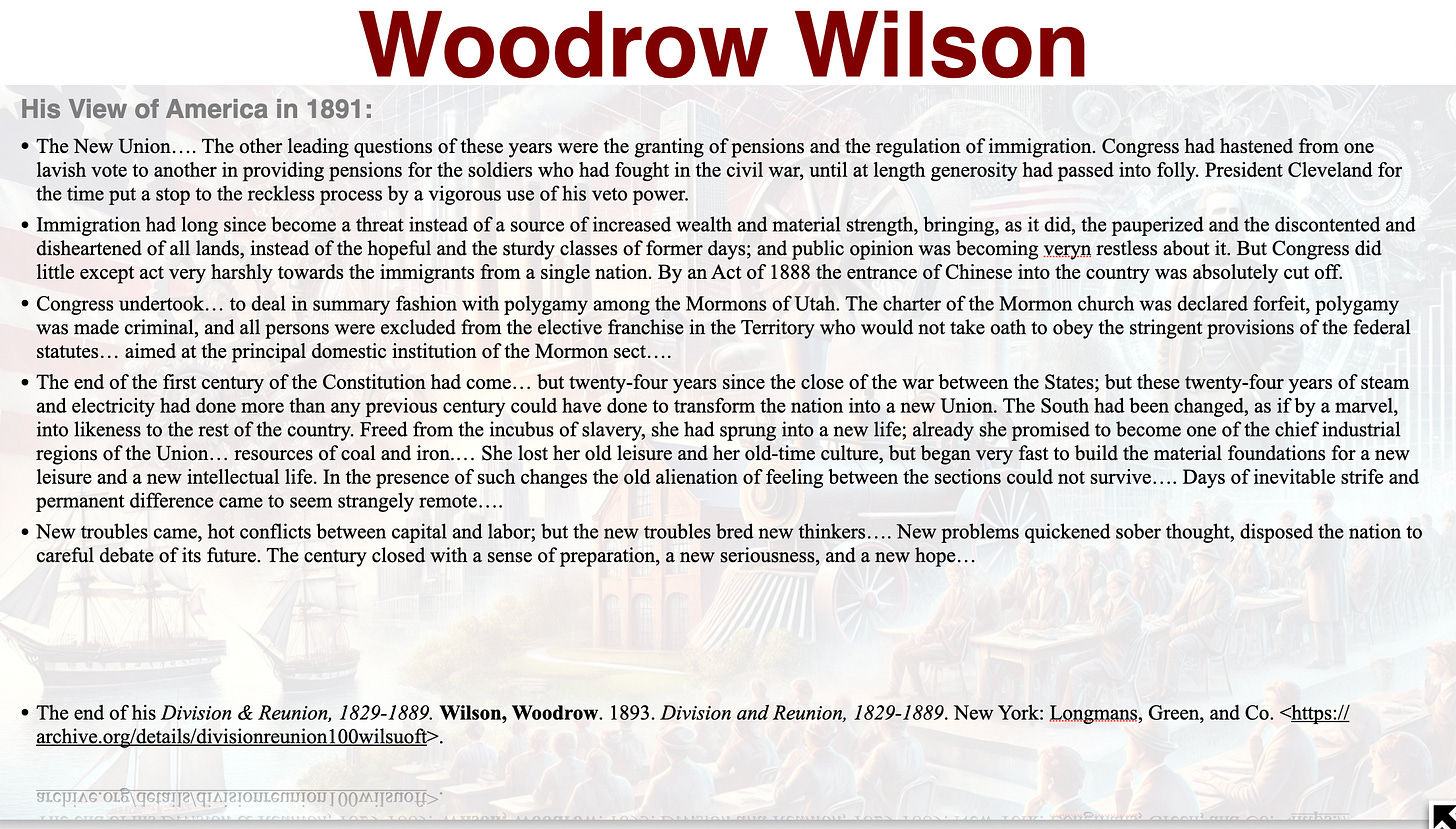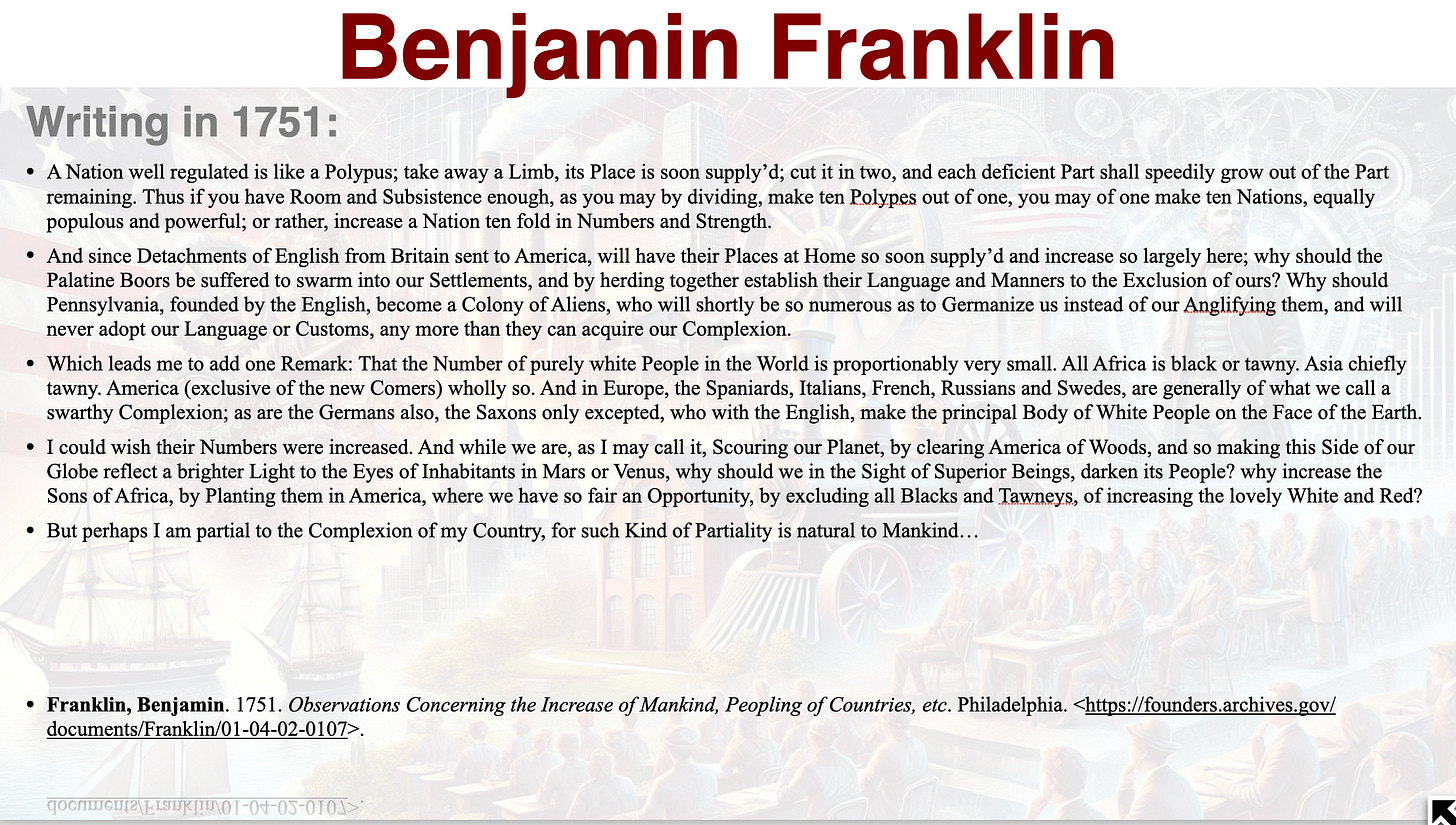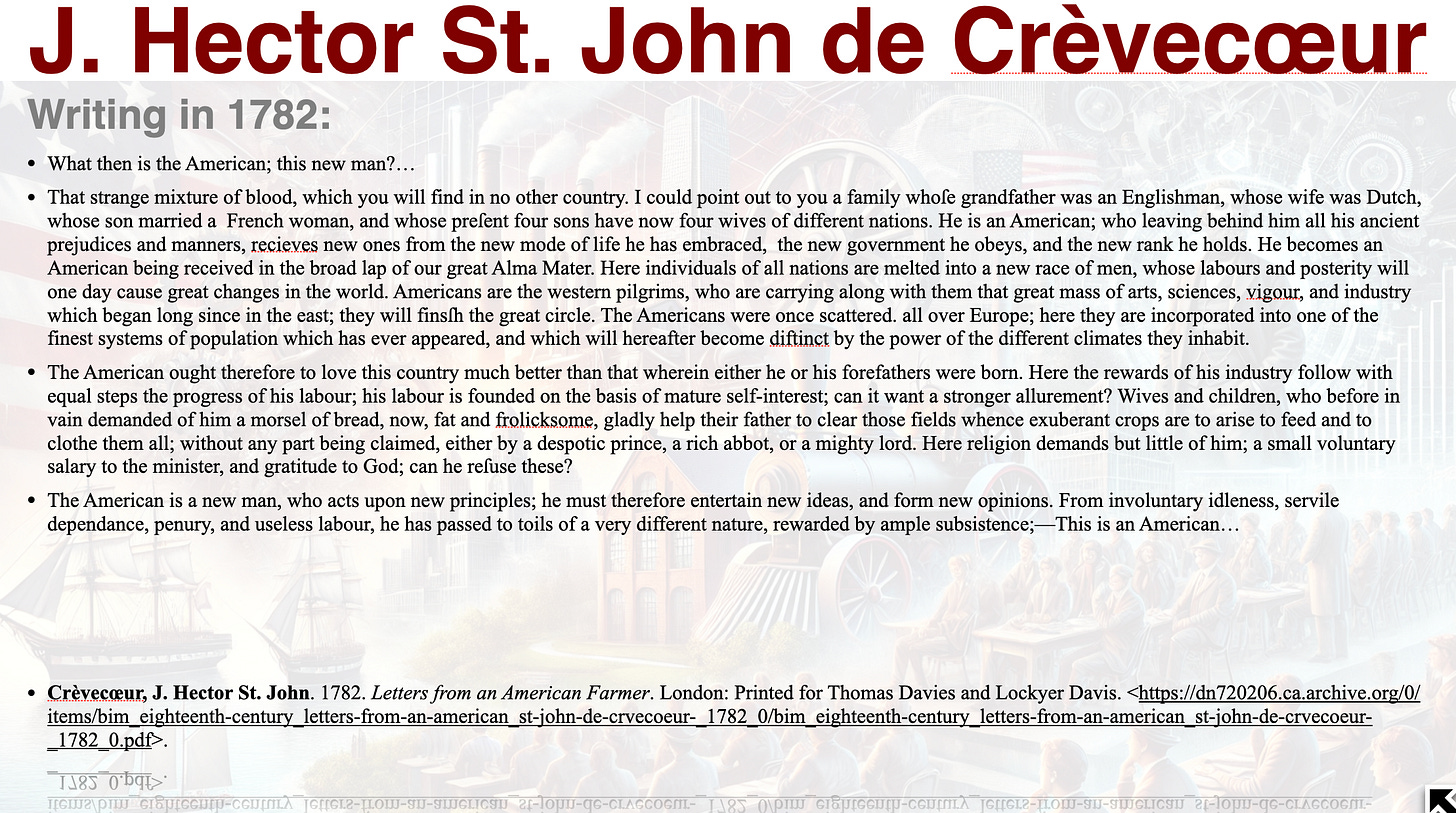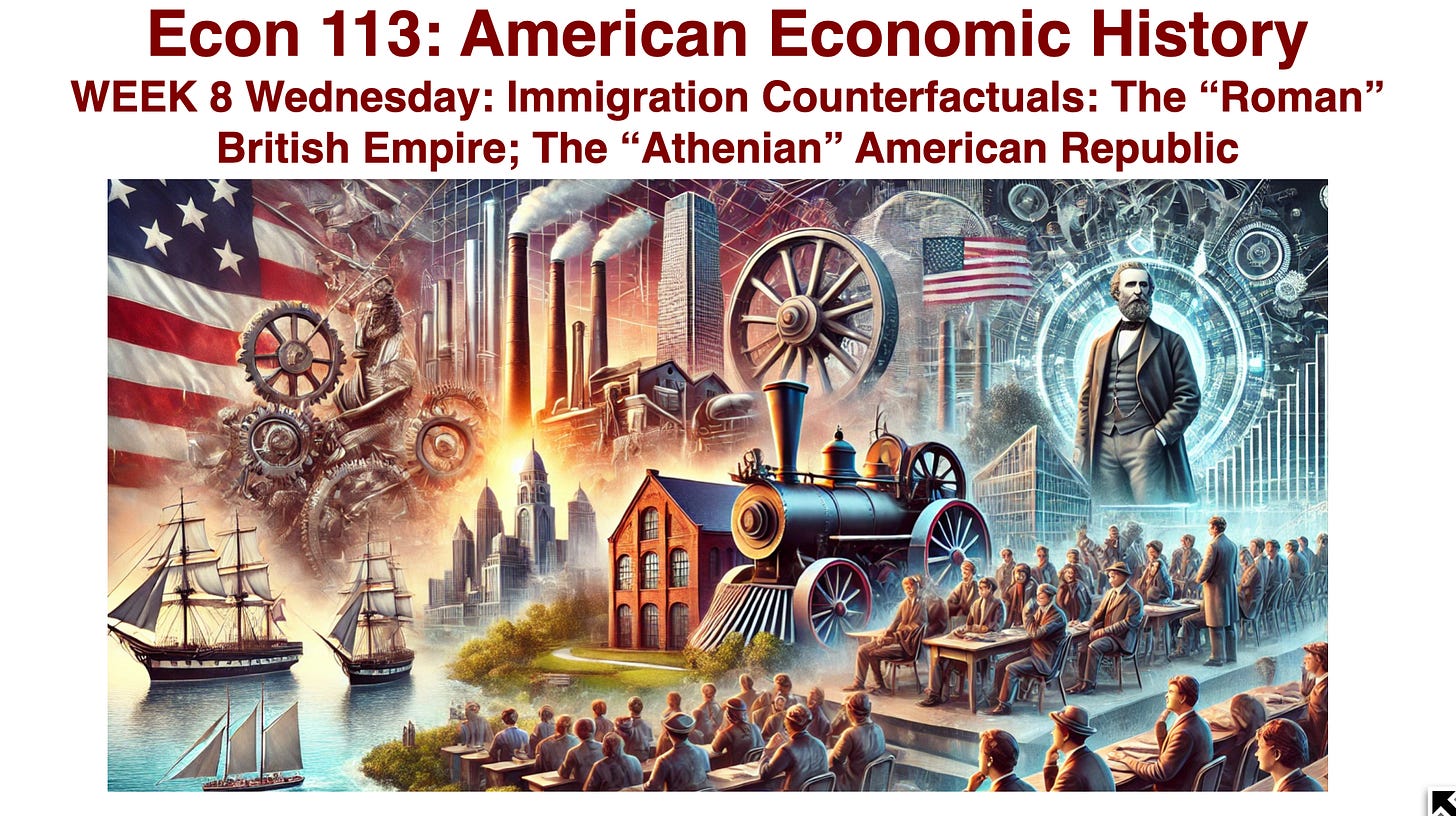Pre-Lecture Notes: Immigration :: American Economic History
I am now officially behind! For the first time this semester, I have to give a lecture on Monday & I did not have a rough draft of it in hand before the semester began! (Fortunately for me, Monday March 10 is the only day in which I am in this pickle until… Monday April 14. I have had drafts of my “Feminism”, “Mass-Production Economy”, & “New Deal Order” lectures in hand for months and months…
Major Orienting Points to Hit:
Except for 1945-1995, America is a country in which 10-15% of its population are foreign-born—first-generation immigrants, or at least potential first-generation immigrants…
Even over 1945-1995, America’s wealth and global power spring from its powers of assimilation: because it is a nation of immigrants…
What is a nation of immigrants? A nation of people fleeing the catastrophes of the Old World and wanting to build something better, together, in the New World…
Everyone who commits to that project is, in the eyes of most Americans all of the time, an American—all of us children of the Pilgrims by election and adoption…
But there is always backlash—whether Benjamin Franklin saying that swarthy Germans should be kept out and America reserved for the White Man and the Red Man, Woodrow Wilson saying everyone from Germany north and west is fine but those south and east are really bad news, or Donald Trump calling for the deportation of everyone (save Melanija Knavs of Slovenia and Elon Musk of South Africa) who came here and started to work illegally.
Strangely enough, the backlash appears unrelated to how many immigrants there are around you you meet every day or indeed the proportion of immigrants in the country…
Yes, immigrants and their children assimilate at a ferocious rate once they learn English—as nearly all children of immigrants do…
American culture and civilization are very attractive—indeed, there are repeated moral panics elsewhere that their children will become Americans even without every living here, and those moral panics are not unreasonable…
No, immigrants are not assimilating more slowly in this wave than in earlier waves…
Yes, immigrants are changing American culture and civilization…
References:
Abramitzky, Ran, & Leah Boustan. 2017. “Immigration in American Economic History”. Journal of Economic Literature. 55(4) December: 1311-45. <https://www.aeaweb.org/articles?id=10.1257%2Fjel.20151189>.
Abramitzky, Ran, Leah Boustan, & Katherine Eriksson. 2020. “Do Immigrants Assimilate More Slowly Today Than in the Past?” American Economic Review: Insights. 2(1) March: 125–41. <https://www.aeaweb.org/articles?id=10.1257%2Faeri.20190079>.
Crèvecoeur, J. Hector St. John de. [1782] 1997. Letters from an American Farmer. Edited by Susan Manning. Oxford: Oxford University Press. <https://archive.org/details/lettersfromameri00crev>.
Franklin, Benjamin. [1784] 1959. Observations Concerning the Increase of Mankind, Peopling of Countries, etc. In The Papers of Benjamin Franklin, vol. 4, edited by Leonard W. Labaree et al., 225–34. New Haven: Yale University Press. <https://archive.org/details/increasemankind00franrich>.
Lodge, Henry Cabot. 1891. “Lynch Law & Unrestricted Immigration”. The North American Review. 152(1) (May): 602-612. <https://www.jstor.org/stable/25102181>.
Wilson, Woodrow. 1893. Division and Reunion, 1829-1889. New York: Longmans, Green, & Co. <https://archive.org/details/divisionreunion100wils>.

